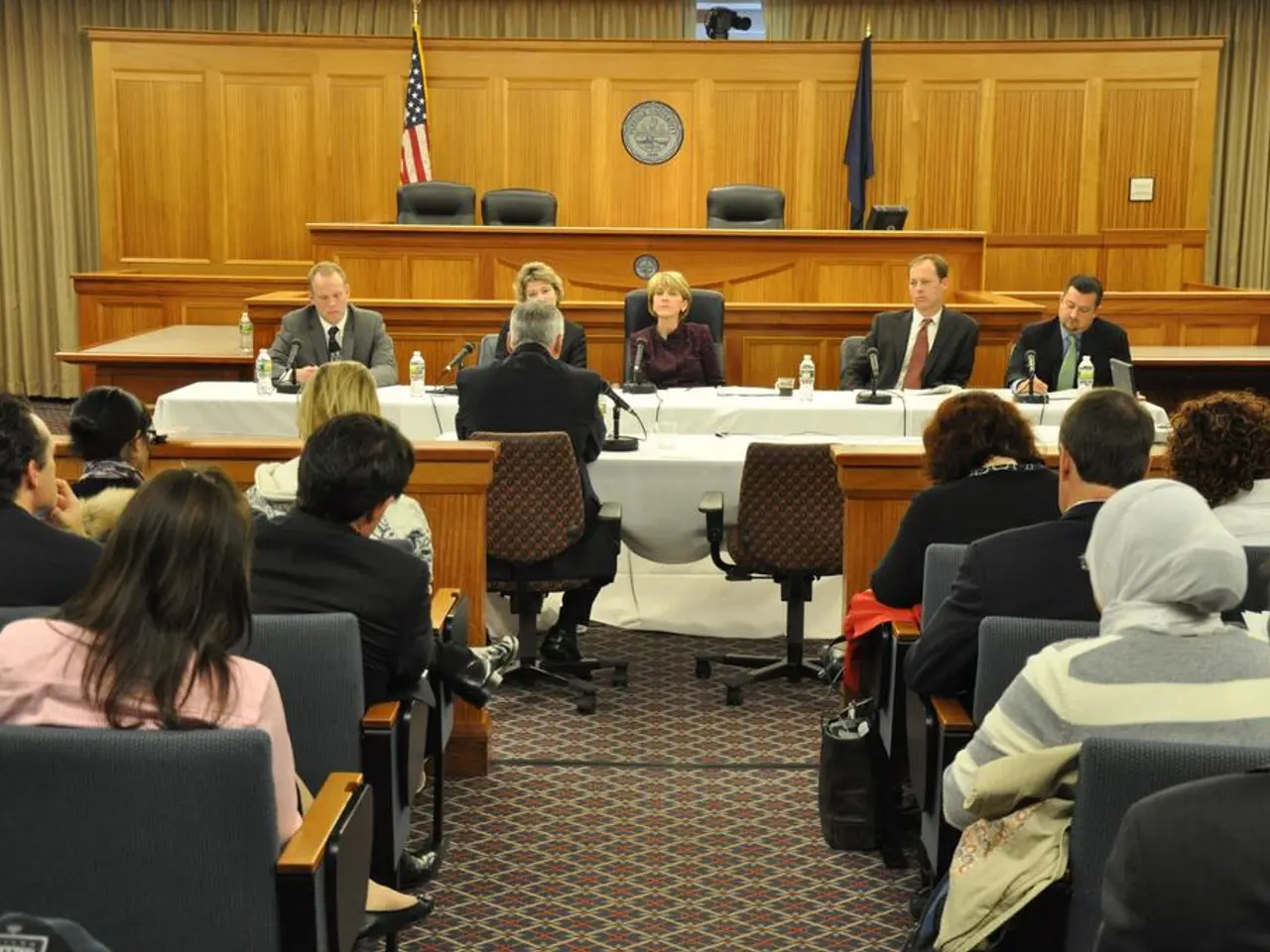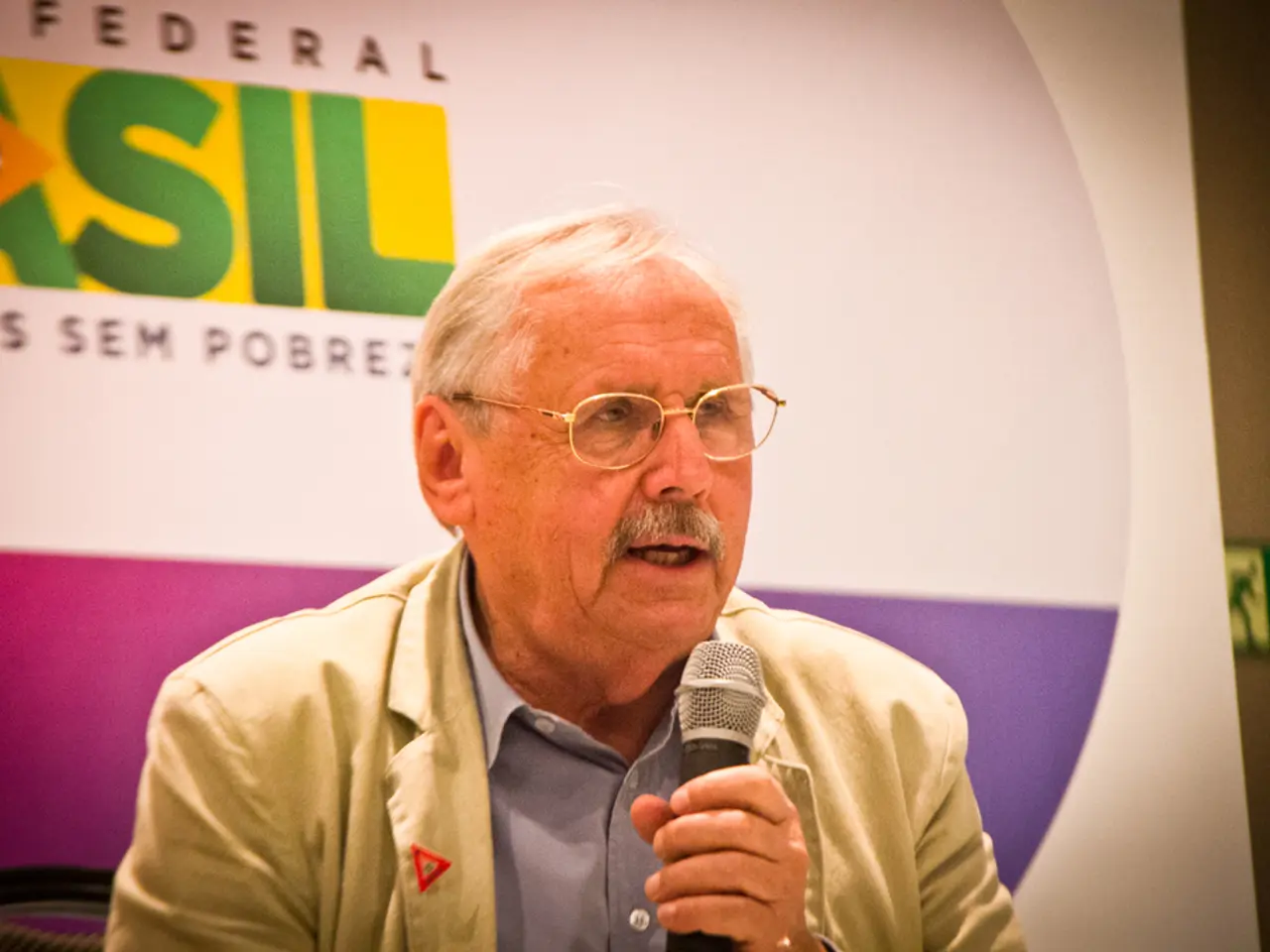EU embraces agreed settlement for refugee acceptance
In a significant development, the European asylum system is undergoing a comprehensive overhaul aimed at harmonising procedures across member states and ensuring a fair distribution of refugees. The reform, centred around shifting asylum governance from national to EU level, is planned to become fully operational by summer 2026 [1][4].
Key elements of the reform include the establishment of greater EU-wide responsibility-sharing for asylum seekers, new rules for screening, border procedures, and returns, and emergency measures for migration crises [1]. The New Pact on Migration and Asylum, agreed in late 2023 and approved by the European Parliament and Council in 2024, enforces a more even sharing of costs and responsibilities in hosting refugees [4].
Burkhard Jung, President of the German City Council, has expressed his support for these principles, emphasising the importance of shared responsibility. Local leaders like Jung have highlighted the need for a fair distribution of refugees among European states to avoid disproportionate pressure on frontline countries, aligning with the reform’s core aim [1][4].
However, the future remains uncertain due to political divides, implementation complexities, and concerns about human rights protections within the new system [1][4]. Some EU governments are concerned about the implementation of stricter deterrence measures, while civil society groups and political actors worry that the reforms might weaken asylum rights or complicate procedures without proper safeguards [2][3]. Countries like Belgium are already adopting restrictive migration policies domestically, which could influence the overall framework's effectiveness [3].
Despite these challenges, Jung has welcomed Germany's decision to act boldly on its own after the fire in Moria, and many cities in Germany are willing to take in refugee families [1][4]. He has also emphasised the need for a permanent and sustainable solution in Europe for dealing with refugees. Cities that have declared their willingness to take in refugees should be particularly considered, according to Jung [1][4].
The distribution of refugees coming from Greece will proceed via the usual procedure, as determined by the key of Königstein. This key determines how the individual states of the Federal Republic of Germany are to be involved in joint financing for refugee distribution, with the share that a state then has to bear based two-thirds on tax revenues and one-third on the population number [1][4].
As the European asylum reform progresses, it is clear that the principles of shared responsibility and fair distribution are gaining support. However, the path ahead is fraught with challenges, and it remains to be seen how these will be addressed to ensure a system that is both effective and protective of human rights.
[1] European Commission (2023). European Commission Proposes New Pact on Migration and Asylum. Available at:
[2] Amnesty International (2024). Amnesty International: New Pact on Migration and Asylum Raises Concerns About Human Rights. Available at:
[3] European Parliament (2024). European Parliament Approves New Pact on Migration and Asylum. Available at:
[4] Council of the European Union (2024). Council of the European Union Adopts New Pact on Migration and Asylum. Available at:
The European policy-and-legislation on migration and asylum, as encapsulated in the New Pact on Migration and Asylum, is designed to enforce a more even sharing of costs and responsibilities in hosting refugees, aligning with the core aim of fair distribution. Local leaders such as Burkhard Jung, President of the German City Council, have expressed their support for these principles, emphasizing the significance of sharing responsibility in the politics of general-news surrounding the European asylum system reform.





